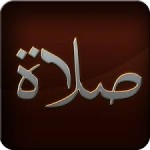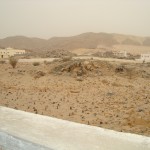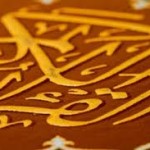Some basic questions on Qurbani: why; who; when; and how?
Question:
I‘m looking for a basic guide on Qurbani to use for my family, students, colleagues, new-muslims etc.
Answer:
In the Name of Allah, the Most Gracious, the Most Merciful.
Please see the following for a brief guide on Qurbani. We hope it is beneficial for yourself and others. Ameen.
Why do we perform Qurbani?
· It is an act of `ibadah (worship)
· The act of qurbani is also a sunnah of Prophet Ibrahim (AS).
The companions once asked, “O Prophet of Allah, what is qurbani?” The prophet (peace be upon him) replied, “It is the sunnah of your father, Ibrahim (AS)”. [Ibn Majah]
· It is a reminder of the sacrifice of Habil and Prophet Ibrahim (AS).
· It is a sign of true faith.
· It is very rewarding.
When the companions asked the Prophet (peace be upon him), “What reward and goodness is there for us from it (i.e. qurbani)?” The Prophet replied that there is “a reward for every hair” and “every fibre of the wool” on the qurbani animal. [Ibn Majah]
· It is the best action during the days of sacrifice (qurbani).
The Prophet (peace be upon him) also said, “There is nothing dearer to the Almighty during the days of Qurbani (i.e. 10th, 11 and 12th of Dhul Hijjah) than the sacrificing of animals. The sacrificed animal shall come on the Day of Resurrection with its horns, hair, and hooves (to be weighed in reward). The sacrifice is accepted by the Almighty before the blood reaches the ground. Therefore sacrifice with an open and happy heart.” [Ibn Majah; al-Tirmidhi; al-Targhib]
· There is great reward and protection from miseries in the Hereafter.
· It is an expression of gratitude to Allah for his infinite favours.
· In not doing so is the displeasure of Allah and His Messenger.
He (peace be upon him) said, “He who is able to perform qurbani yet does not do so, let him not approach our place of [Eid] salah.” [al-Hakim; al-Targhib]
It is praiseworthy and greatly rewarding for a person to perform additional qurbani (sacrifice of animal) on behalf of family, relatives, deceased, pious predecessors and in particular our beloved Prophet Muhammad (peace be upon him) and his family. It is more rewarding to sacrifice an animal and distribute the meat to the poor and needy on behalf of the deceased [in extending its reward to them] than to give that amount of money in charity on their behalf during the days of Eid al-Ad`ha.
On whom is Qurbani necessary?
It is wajib (necessary) to slaughter a qurbani animal during the days of qurbani for every Muslim who during the days of sacrifice (qurbani) is:
· Sane;
· Baligh (having reached the age of puberty);
· Possessor of enough wealth i.e. owning nisab or the equivalent in cash surplus to basic necessities – (The difference between qurbani and zakah is that it is not a requirement for
an entire year to pass over one`s wealth for the qurbani to be compulsory upon someone. Qurbani is wajib upon the person upon whom sadaqat al-fitr is wajib.)
· And a non-traveller (resident; muqim).
It is not wajib for an insane person, a minor, a poor person or a musafir [travelling shar`i distance] to perform qurbani. However, in doing so, there will be reward.
It is preferable for the person intending to perform qurbani not to remove hair and nails from the first of Dhul Hijjah till the qurbani animal has been slaughtered.
What is Qurbani?
Qurbani is to sacrifice and slaughter an animal as an act of worship during the days of Eid al-Ad`ha. It is not sufficient to simply give the price of an animal in charity.
What is the time for Qurbani?
The qurbani animal must be slaughtered anytime within the days of sacrifice – from the 10th of Dhul Hijjah till the sunset of the 12th of Dhul Hijjah. Qurbani may be performed on any of these three days. However, the preferred time is the 10th of Dhul Hijjah before noon, followed by later on during that day, then the 11th and then the 12th of Dhul Hijjah. It is impermissible to perform qurbani any time before the sub`h sadiq (if in the village or farm) or Eid salah (if in the city or town) on 10th of Dhul Hijjah and after the sun has set on the 12th of Dhul Hijjah. The qurbani animal may be slaughtered during the day or night [as long as there is enough light to ensure the veins of the animal are cut properly].
How should the Qurbani meat and skin be distributed?
· You may keep the meat, skin, bones, fat, and hide of the animal [including the rope fastened to it] for your own personal use or gift it to whomsoever you wish, rich or poor, Muslim or non-Muslim. It is preferable to reserve one-third of the meat for your household, one-third for family and friends and one-third for the poor and needy. However, the person may even keep everything for himself if he is needy.
· It is impermissible to give any part of the animal as a form of payment. Neither the meat nor the skin or any part of the animal should be sold or given as payment in lieu of any type of service.
· However, if any part of the animal is sold, the proceeds received from it should be given away in sadaqah (charity) to the poor and needy [who are entitled to receive zakah]. It is not permissible to give to any other cause [besides to the very poor] such as to upkeep a masjid or madrasah.
· The following from an animal are impermissible to consume [even if from a halal animal]: flowing blood, sexual organs, anus, glands, bladder, spleen and [according to some] marrow (from the lower back up to the neck).
And Allah Ta‘ala Knows Best
DISCLAIMER:
The Ask Our Imam site hopes to respond to queries relating to Islamic law. It is not an Islamic Law Shari`ah Court. The questions and answers found on this website are for educational purposes. However, many of the rulings rendered here are distinct to the specific scenario and thus should be read in conjunction with the question and not taken as a basis to establish a verdict in another situation or environment. This site bears no responsibility in these responses being used out of their intended context, nor to any party who may or may not follow the responses given and is being hereby exempted from loss or damage howsoever caused. None of the responses rendered may be used as evidence in any Court of Law without prior written consent of Our Imam. Any reference to another website or link provided in our responses or article should not be taken as an endorsement of all the content on that website; in fact, it is restricted to the particular material being cited.
Posted in Hajj/ Umrah (Pilgrimage) on 7th Aug 2021 by Our Imam | 1354 Views







